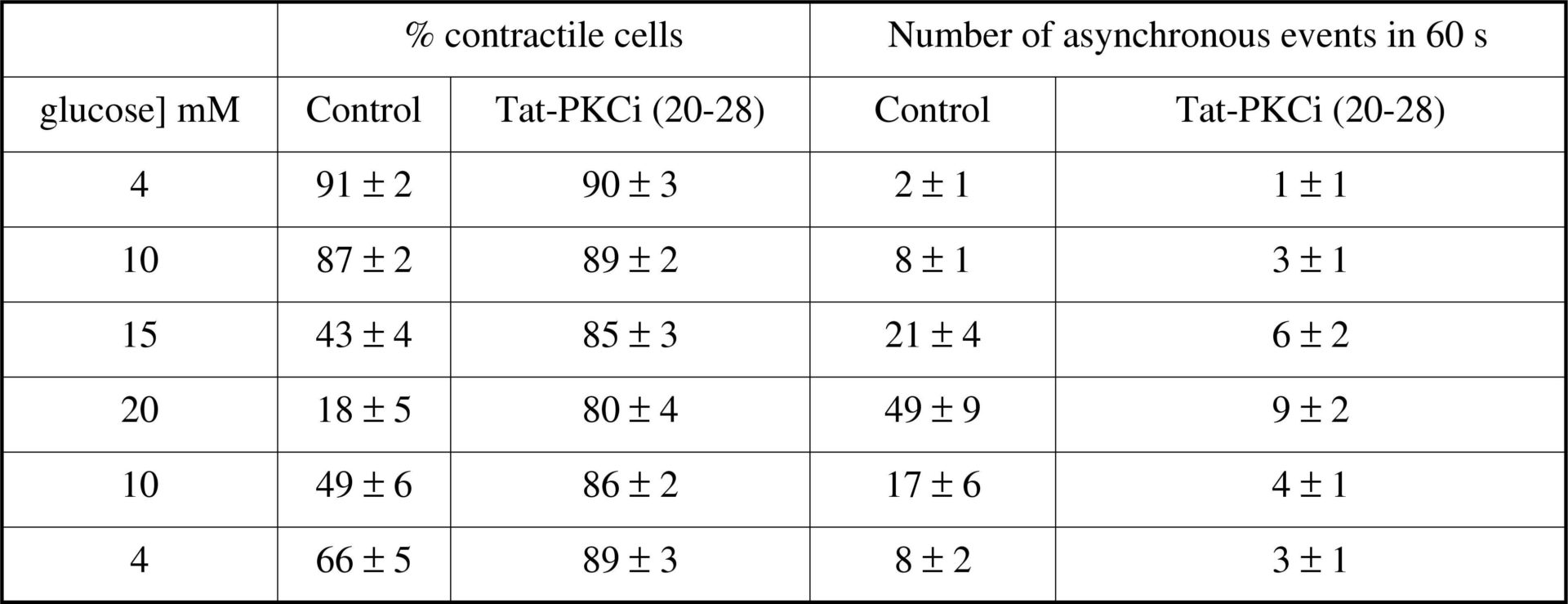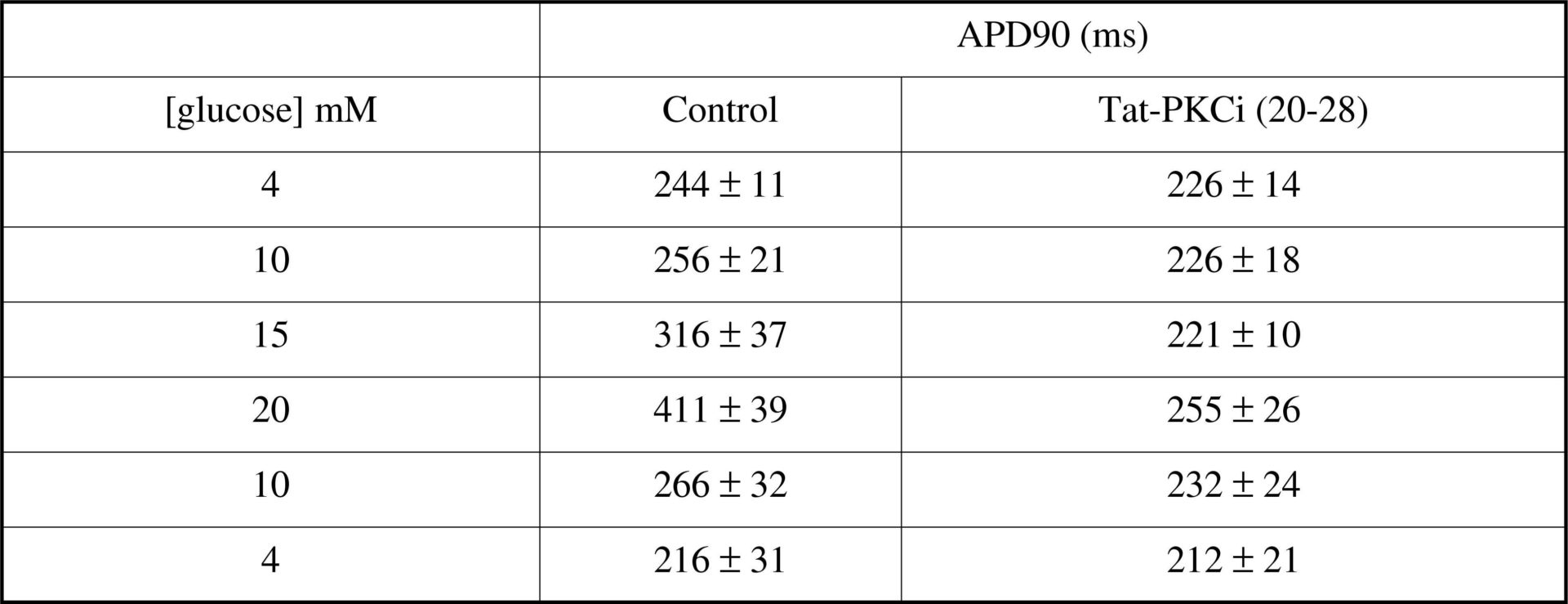In patients with acute myocardial infarction (MI), pre-existing Diabetes is associated with higher mortality in-hospital, and after discharge1. The mechanism(s) by which elevated blood glucose affects outcome are unclear. One possible mechanism may be via deleterious effects on cardiac depolarisation2, 3. Glucose, or at least its influence on metabolism, has been demonstrated to cause an activation of PKC in a number of cell types, including cardiac myocytes vascular smooth muscle4. In vitro, using guinea pig isolated ventricular myocytes, we have observed graded increase in action potential duration (APD) in response to increasing glucose concentration which appears to be PKC dependent in its effect. Briefly, cardiac myocytes were isolated from guinea pig hearts as described previously5. Cells were maintained at room temperature in 4 mM glucose 2CaT solution. The contractile functions of the cardiac cells were investigated using electric field stimulation (EFS) at 1 Hz. Cells were continuously perfused with 4 to 20 mM glucose containing 2CaT solution osmotically balanced with mannitol. The number of contractile cells and the number of asynchronous contractions was measured for each 30 second time period during the recording. The same experiment was performed after pre-incubation with a cell permeant Tat-peptide linked PKC inhibition (20-28). The APD of cardiac myocytes was also measured in increasing concentrations of glucose5. APD prolongation is a potentially pro-arrhythmic signal in cardiac cells. Glucose-induced cardiac APD prolongation appears to be mediated by a PKC-dependent process and this may provide a mechanism by which hyperglycaemia can worsen the prognosis after MI.
University of Manchester (2010) Proc Physiol Soc 19, C49
Oral Communications: Elevated extracellular glucose concentration causes a marked PKC-dependent action potential prolongation in guinea pig isolated ventricular myocytes
R. D. Rainbow1, R. I. Norman1
1. Cardiovascular Sciences, University Of Leicester, Leicester, United Kingdom.
View other abstracts by:
The number of asynchronous contractions leading to contractile failure increases in elevated extracellular glucose. This is markedly reduced by a PKC inhibitor peptide<#13>
The APD to 90% repolarised (APD90) increases in elevated extracellular glucose. Tat-PKCi (20-28) markedly reduces the prolongation<#13>
Where applicable, experiments conform with Society ethical requirements.


